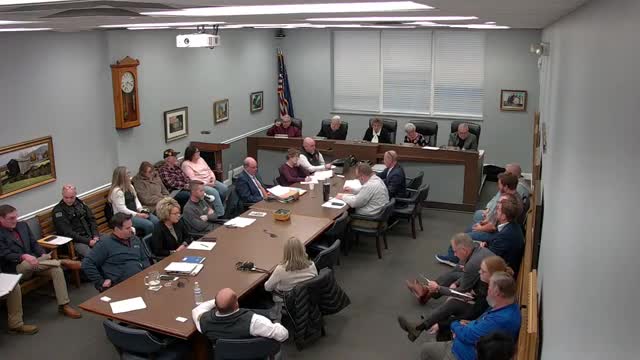Maysville officials detail $25.6 million CSO grant, plan water-line, vow better resident alerts
Get AI-powered insights, summaries, and transcripts
Subscribe
Summary
Utility staff reported a $25.6 million line‑item grant from the Kentucky General Assembly for Maysville’s combined sewer overflow project and said the funding will limit the need to borrow and allow the city to accelerate water‑line work.
Utility staff reported a $25.6 million line-item grant from the Kentucky General Assembly for Maysville’s combined sewer overflow project and outlined plans to use the funding to avoid borrowing and to accelerate repairs to aging water lines.
The grant “will keep us from having to raise sewer rates for the foreseeable future because we don't have to pay this money back,” the utility manager said. He described the combined sewer overflow (CSO) program as a multi‑phase, consent-decree driven series of upgrades that includes work at six sewer pumping stations and upgrades at the wastewater treatment plant.
That funding, officials said, also gives the city flexibility to shift available cash or to take on new bonding to begin replacing worn distribution mains that have produced repeated breaks. The utility manager said the city had previously repaid KIA loans at roughly $900,000 a year and would have otherwise needed to borrow for the CSO work; the grant removes that repayment pressure.
Residents pressed staff about frequent water main breaks and about a breakdown in emergency notification during a recent outage that affected Mayslick. Pamela Wilkins, a resident, asked what the city would change to prevent improper installations after staff said a problem line had been laid “on solid rock.” The utility manager said the new water line to Mayslick will be encased in gravel and inspected during installation to prevent the same problem, and that an inspector will be present whenever a crew is on site.
Catherine Sierra, a Mayslick resident, told commissioners she had not received emergency text alerts since Jan. 29 and only discovered an outage after seeing Facebook posts. “We drink the water all day yesterday and the day before… I’m signed up for the text messages. I didn't get anything,” Sierra said.
Tony, a city staff member who works on notifications, explained the city’s alert polygon approach and directed residents to a sign-up process: text “MasonCounty” as one word to 78015 to receive localized emergency notices. He also said the city is working with the vendor (RAVE) on technical issues after some notifications were delayed or failed to send.
Staff described planned projects and timelines: an ongoing lead-service-line inventory; rehabilitation and improvement contracts at the water treatment plant, including plate-setter replacements and dry-well work; a recently closed Wall Street CSO project; and engineering for a new water line from Washington to Mayslick that would add redundancy. The utility manager estimated that the new primary water-line program — roughly eight miles of new pipe — would take about 12 to 18 months to deploy once funding and approvals are in place and said the new line would be eight inches or larger and include a booster pump station.
Officials described an estimated cost range of $60 million to $70 million for a potential new water treatment plant and said they are pursuing preliminary engineering before seeking further funding. The manager said staff are coordinating with state legislators and the Division of Water and will request bids for some projects after final engineering and approvals.
Several commissioners and residents urged clearer public communication and suggested a town hall or a project tracker on the city website so residents can see project milestones, budgets and timelines.
Ending: Staff offered direct follow-up: Tony said he would investigate specific sign-up failures and that utility staff would share engineering updates as they become available. The utility manager invited affected residents to contact him directly for site visits and follow-up.
